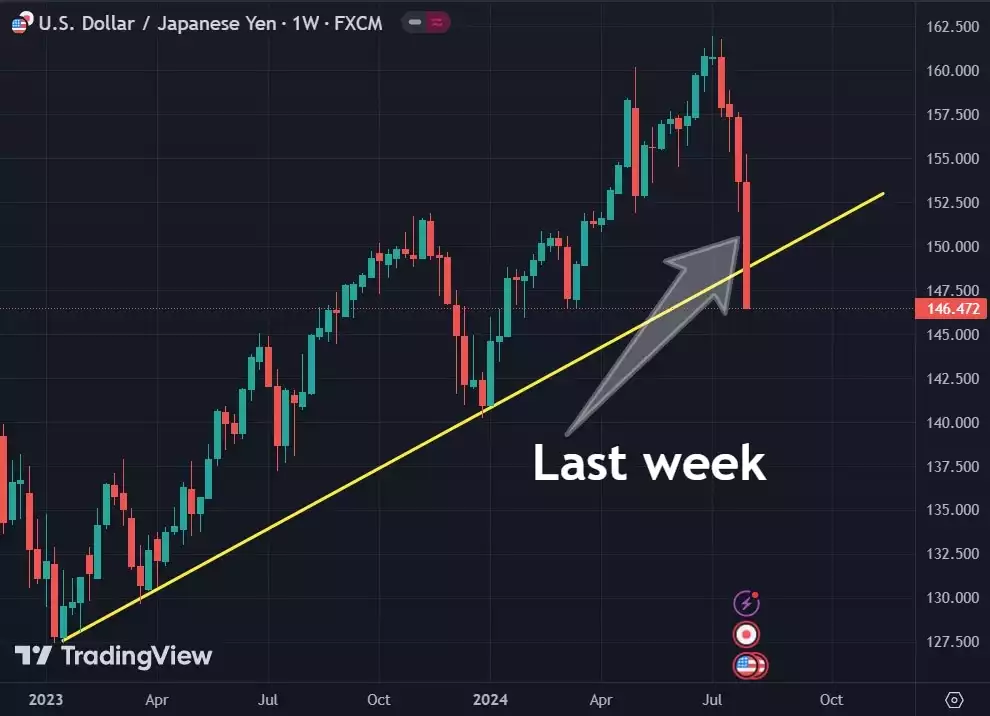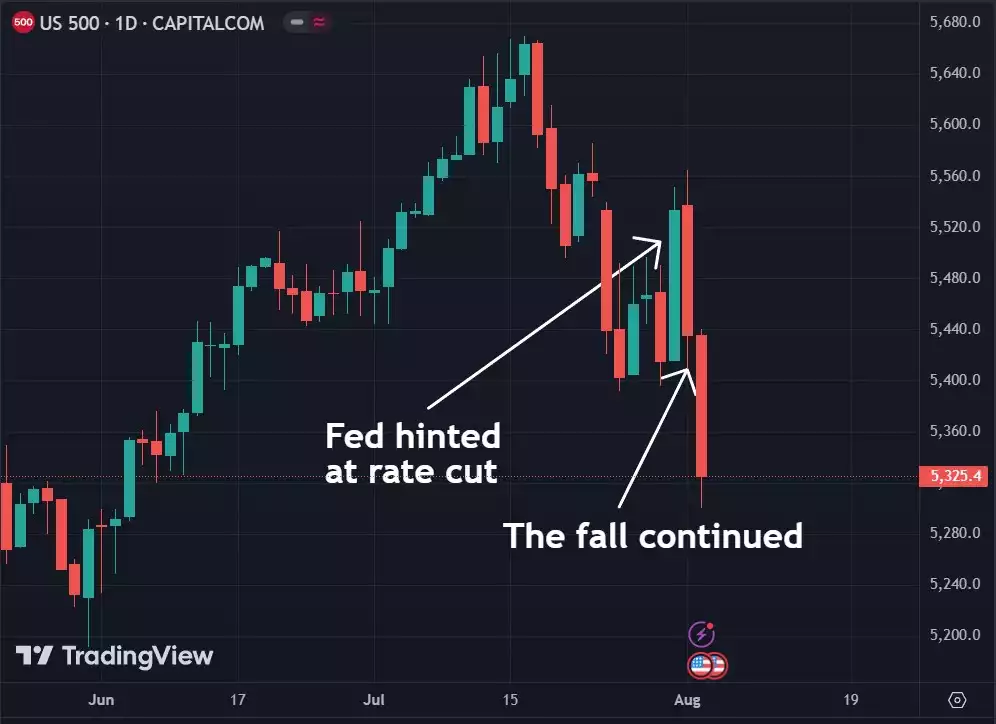Japan Causing Massive Deleveraging Event, Buffet on Defence
News
|
Posted 05/08/2024
|
3045
U.S. stocks suffered a horrible end to the week as investors moved to bonds and pulled away from equities. The jobs report came out weak (114,000 vs 175,000 expected), but the Fed’s Barkin dismissed the numbers as reasonable. But what else is happening in the markets which could be causing such a dramatic drop?
To understand, let's first discuss carry trades. This means borrowing a low interest rate currency and using the money to fund something with a higher return. In this case, the carry trades we will discuss are in Japanese Yen. It has been the standard for roughly 20 years for traders to borrow Yen, then use the money for something deemed high return, such as stocks.
What would happen if Japanese low interest rates and therefore cheap currency started to reverse? What would happen if the stocks which seemed high return started to look not so hot? This would be a total reversal of the status quo. If that does not sound damaging enough, let's introduce leverage into the equation. These trades are typically done with very high leverage which can make reversals especially explosive. That’s what has been happening as banks around the world begin to cut, and Japan has recently hiked their interest rate.
Friday, we talked about using the currency pair USD/JPY to predict the future of gold prices. Here is the same chart one day later. Notice the Yen rocketed in value, meaning the USD went lower in comparison:

This may be part of what is causing a rug pull in equities. Here is the U.S. S&P 500:

Warren Buffett also seems to be growing cautious about stocks. At Berkshire Hathaway, the cash reserves have surged to nearly US$277 billion, and he’s sold about half of the company’s stake in Apple, despite their record quarterly operating profit. The results suggest that Buffett might be concerned about the U.S. economy or that stock market valuations have become too inflated.
These findings came after a stock market decline that pushed the Nasdaq into correction territory and a weak jobs report, which raised concerns about U.S. economic activity and whether the Federal Reserve delayed too long in cutting interest rates.
This marks the seventh consecutive quarter that Berkshire has sold more stocks than it bought. The company also repurchased only US$345 million of its own stock, down from US$2.57 billion in the first quarter, with no buybacks in the first three weeks of July.